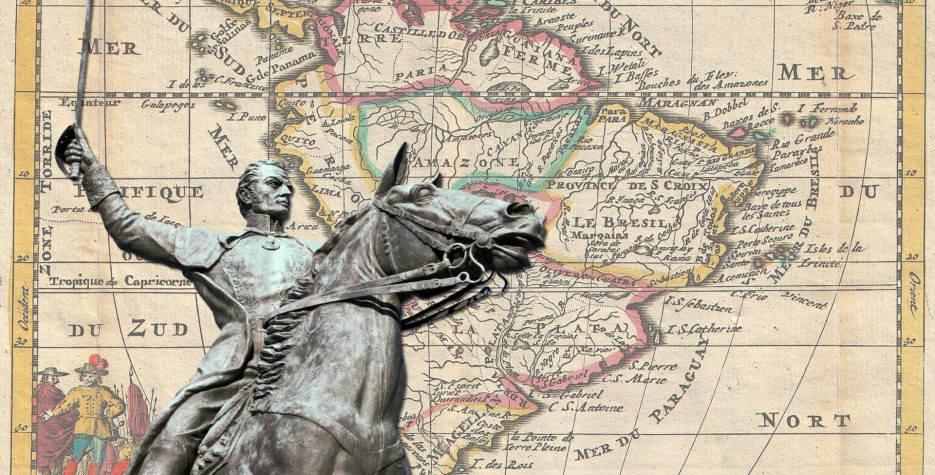When is Simón Bolívar Day
Simón Bolivar Day is a national holiday in Venezuela and is always celebrated on July 24th.
It commemorates the birthday of Simón Bolívar, a Venezuelan who played a key role in Venezuela, Ecuador, Bolivia, Peru and Colombia becoming independent from Spain.
History of Simón Bolívar Day
Simón José Antonio de la Santísima Trinidad Bolívar y Palacios was born in Caracas on July 24th 1783.
He was born into an influential and rich family, but both his parents died before he was ten, and Bolivar was placed under the guidance of several tutors, the most influential being Don Simón Rodríguez, who became his mentor and instilled in Bolivar the ideas of liberty, enlightenment, and freedom. When Bolivar was 14, Rodríguez had to leave the country and Bolivar joined a military academy. When he was 16, Bolívar was sent to Europe to complete his education.
He lived in Spain and married the daughter of a Spanish nobleman in 1802. He then returned to Caracas with his young bride, who died less than a year later from Yellow fever. He then travelled across Europe for a few years, even meeting Napoleon Bonaparte whose success at the time impressed Bolivar.
On his return to Caracas, he found a region that had started to embrace the idea of independence from colonial rule. In 1810, he joined a group of patriots that temporarily seized Caracas and proclaimed independence from Spain.
In 1813, he was given command of a patriot army and he began a successful military campaign – recapturing Caracas from the Spaniards. He was soon forced to retreat to New Granada (now Colombia), which was also at war with Spain. Taking command of a Colombian army he captured Bogota in 1814. The struggle for Colombia (now Ecuador, Colombia, Panama, and Venezuela) continued until 1819. After the military victory, he led the congress that organised the original republic of Colombia and Bolivar became its first president on December 17th 1819.
He then began his campaigns to liberate Venezuela and Ecuador. He liberated Peru in 1824 and in 1825, Upper Peru became a separate state named in his honour - Bolivia. Bolivia's constitution, which he drew up for, is seen as one of his most important political pronouncements.
Across the continent, Bolivar was hailed as ‘El Libertador’ – the Liberator.
Whilst he was regarded by many as a great leader, his views, notably that of a federation of Latin American republics, caused resentment amongst other political leaders. In 1828, he narrowly avoided an assassination attempt and in 1830, Bolivar resigned his presidency. He died from tuberculosis towards the end of that year.


